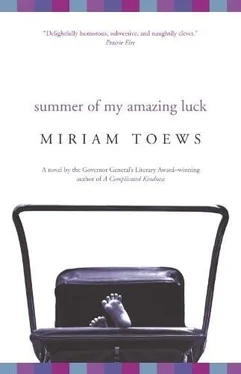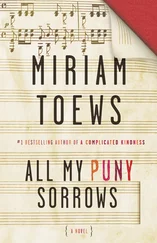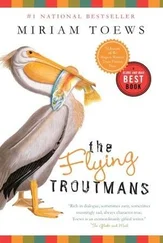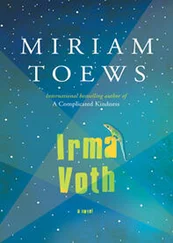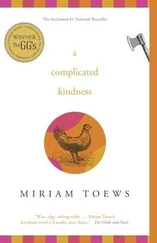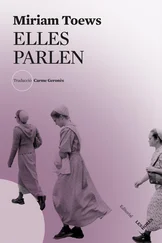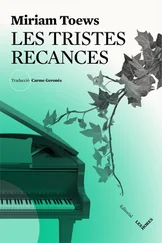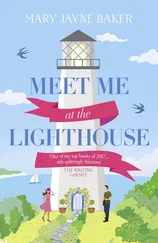When we got back to Half-a-Life, Sing Dylan was outside trying to get the water to run somewhere other than into his apartment. He had given up trying to get the graffiti off the wall for the time being. When he was done digging and draining and piling and drilling, Sing Dylan asked us if we could help Sarah drag out his soaked carpet. It must have weighed two thousand pounds. Each of us, even the twins, grabbed a handful of wet carpet and pushed and pulled it up the stairs and out the back door. By this time we were surrounded by swarms of mosquitoes.
I thought about my friends from high school. What would they be doing now? When Dill was born, they were all really enthusiastic. They brought me and Dill presents and they asked to hold him and offered to babysit. They loved to hear me talk about his birth. “Didn’t it hurt?” Then one by one they stopped calling. Once in a while I’d meet one of them somewhere and they were always really friendly, promising to call to get together. But that never happened. I had heard that Sheila had moved to Toronto to study law. She was living out there with a lawyer in a place called Forest Hill next to a castle. I thought of Lish. I thought of the two of them together. Sheila had been really poor as a kid; her dad had tried to kill her mom and was eventually committed to some kind of looney bin. Her mom sometimes put make-up on one eye and forgot to do the other one.
Lish, on the other hand, had grown up in a wealthy home. Her dad had invested in the future, made sure they were all secure. Her mom stayed at home and sewed them Hallowe’en costumes and cooked their favourite meals. In the evenings they played board games together. They had a summer home in France and a French au pair to help their mom look after them there and teach them the right kind of French. Her dad flew in for a few days at a time. Now Lish lived in Half-a-Life, trying to raise four kids on welfare. So much for security. As my mom would have said, “Tricky life, this.”
We got the wet rug out onto the grass. Sing Dylan gave each of the kids a loonie for their help, even Dill, who had made Sarah trip on the last step. Dill tried to put the loonie in his mouth and Letitia grabbed it away from him and gave it to me. She had a very solemn expression on her face. Sing Dylan patted the kids on their heads and then he slapped Sarah’s cheek. She smiled and said thanks. A big glob of blood stained her cheek and Sing Dylan flicked the remains of the mosquito off his hand. Somehow his safari suit managed to stay white even with all that blood and rain and dirt.
That afternoon Lish came over to my place with the twins. Dill was having his afternoon nap, so the twins played quietly and Lish and I watched Y & R: our lives were nice and dull compared to those in the soap. Some people watched them to escape from their normal lives. We watched them to appreciate ours. I had heard of a soap opera in Brazil where the audience was allowed to vote on what would happen next: should Officer João Carlos go to the chair for killing those street kids or should he be promoted? Should Branca tell her chubby husband that he repulses her or should she just go ahead and have an affair with the handsome doctor? “Well, that’s an easy one,” Lish said. If it had been up to me I would have brought all the couples together. They would stop trying to kill each other and fool around behind each others’ backs and steal the kids. They would be funny, I told Lish, and instead of all that skulking around they would shout out their problems and cry and laugh freely and love one another and leave the kids alone. “Oh, pa-lease Lucy,” said Lish. “People don’t want to see that. They want blood and revenge and sorrow. That’s what makes them feel better.”
Good grief, I thought, if that was the case my mom may as well have said FUCK! YOU! to me every time I went out instead of GOOD! LUCK! But what about the letter? Hadn’t the letter from the busker made Lish happy? She had been full of energy since she got it: laughing and singing and buzzing around her apartment organizing things, throwing stuff out, putting up different pictures and posters, washing her cupboards. She had taken a book out of the library called Clutter’s Last Stand , determined that it would help her to get rid of her junk. Her unnecessary junk. If any one of us in Half-a-Life got rid of all our junk our apartments would be bare. Was she expecting him to appear at her door? The letter said simply, “I’m thinking of you. I miss you. I haven’t met anyone else that could make me laugh like you. Do you still have your spider hat? Oh Right. I’m sorry about taking your wallet, I was going through a bit of a hard time when I met you. I’m sorry. But hey, how would I have had your address if I hadn’t stolen your wallet? I’m on the road now, a different city or town almost every day so there’s no point in writing me. I’m going to try to make it to Winnipeg sometime this summer. I hear it’s very wet. Right now I’m in Cleveland. Take care of yourself Lish, say Hi to your daughters from me.” It was signed, “The guy in rm. 204.”
Lish had read it to me. She assumed that he assumed that she knew his name. He had never actually told her his real name. All she knew him as was “Gotcha,” his show name. I guess if people were always calling you that, you would want to run away. And that’s all that he was called in that old program she’d found. I thought about the letter and it made sense that Lish was ambivalent about it. Excited, yes, to have heard from him, the love of her life and the father of the twins. But on the other hand, it hadn’t been too specific. Would he visit or wouldn’t he? And if he had been thinking about her all these months — years — why didn’t he sound more passionate in his letter? Maybe she would think he wrote letters like this to all his one-night stands. Maybe she would think he was just drunk and lonely and feeling bad about stealing her wallet. And so what if he was the twins’ father? They didn’t know him. How could they miss him? They were happy enough the way they were. It would have to be a lot more convincing for her to think he really cared.
Anyway, Lish seemed to think this letter was a sign a sign that he would, when he could, show up at Half-a-Life. In her heart she was thinking they could put the past behind them, start anew, make love desperately at first and then in a more knowing, confident way. The twins could hate him at first for leaving and then come to love him as a father should be loved. They could all tour in the summertime and maybe even become an entire performing family. They’d be good at it. And even if something bad happened at least the twins would know that he had made the effort. And that was the most important thing, wasn’t it: that he had tried to find them? But so far Lish hadn’t told the twins or anybody except me about the letter. In Half-a-Life it had happened often enough that one of the women would get her hopes up over some guy and then have them dashed soon afterwards. There was no point in even talking about it until it was real, until the guy had maybe moved a few clothes in or offered to take care of the kids for a while. Besides, the others in Half-a-Life thought Lish was fooling herself thinking life was more simple than it really was. I didn’t think that she thought that life itself was simple at all: it was just her take on it that she had smoothed over and over, whittled and refined, until it became simple. Do what makes you happy because there is no sure thing. Just because you can pick out four-leafed clovers doesn’t mean you’ll get lucky.
Another reason why the women in Half-a-Life didn’t publicize every encounter with a man was because it could lead to trouble with welfare. Most of us were friends or had at least a grudging tolerance for each other. Even Naomi and Terrapin were seen laughing over something in the hallway. Public housing isn’t called public housing for nothing. If you’ve got some dirt on your neighbour, chances are she’s got some on you. So, in an unspoken form of a truce, we stick together. Most of the time. Our problem was more Serenity Place. And theirs was us. We were two opposing teams in the game of welfare.
Читать дальше
